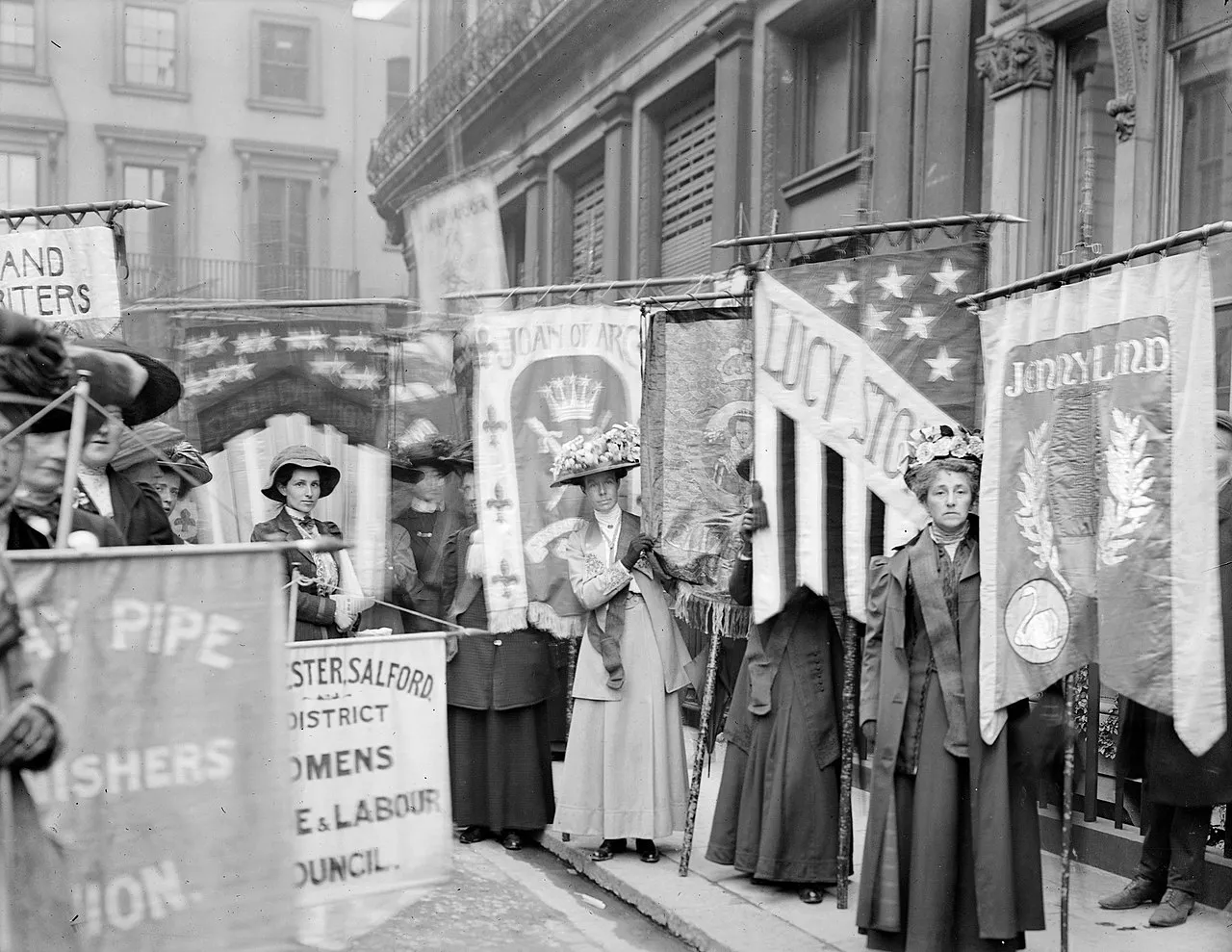In a letter dated March 31, 1776, Abigail Adams wrote to her husband John (who was meeting with the Continental Congress at the time and who would become the second president in 1797) encouraging him on behalf of the women of America.
She wrote: “I long to hear that you have declared an independency. And, by the way, in the new code of laws which I suppose will be necessary for you to make, I desire you would remember the ladies and be more generous and favorable to them than your ancestors. Do not put such unlimited power into the hands of the husbands. Remember, all men would be tyrants if they could. If particular care and attention is not paid to the ladies, we are determined to foment a rebellion, and will not hold ourselves bound by any laws in which we have no voice or representation.”
Apparently, John had little influence on the proceedings which formulated the Constitution, or he was one of the tyrants that Abigail had taken note of, because the resultant document contained nothing which stipulated who was entitled to vote in presidential elections, especially women. So why were women excluded?
Article IV, Section 2 states: “The Citizens of each State shall be entitled to all Privileges and Immunities of Citizens in the several states.” There appears to be no exclusion of women here unless they were not, for some reason, considered “citizens.”
The Fourteenth Amendment, Section 1 appeared to have clarified the definition of “citizen,” but then again, made no reference to sex: “All persons born or naturalized in the United States, and subject to the jurisdiction thereof, are citizens of the United States and of the State wherein they reside. No State shall make or enforce any law which shall abridge the privileges or immunities of the citizens of the United States, nor shall any State deprive any person of life, liberty, or property without due process of law; nor deny to any person within its jurisdiction the equal protection of the laws.”
Just two years after ratification of the Fourteenth Amendment, the Fifteenth was ratified, stating: “The right of citizens of the United States to vote shall not be denied or abridged by the United States or by any State on account of race, color, or previous condition of servitude.” But not on account of sex.
All this reference to “citizens” – and yet it was another 133 years before full citizenship status was recognized for women. It seems a bit of a mystery as to why the status of women as citizens was not successfully challenged in Supreme Court cases.
It was nearly three-quarters of a century following Mrs. Adams’ letter that the real push for universal women’s suffrage began in the years before the Civil War, even though, in some few states, women were allowed to vote for local or state issues. Wyoming was the first to recognize the rights of women to vote, even before it was admitted to the union.
But the fight for full voting rights for women continued through the 19th century and into the first two decades of the 20th as women’s suffrage groups moved from trying to gain voting status in the individual states to getting a Constitutional amendment passed that would grant them their rights nationwide.
Women’s groups seeking the voting franchise morphed during the years and several emerged, some seeking to placate the sensibilities of legislators, some being more militant in their approach.
Finally, during the administration of Woodrow Wilson, efforts intensified as women became more bold in approaching and admonishing members of Congress and the President, even resorting, for a period of time, to daily picketing the White House, much to the distress of Wilson and his wife Edith, who was decidedly anti-suffragist.
Eventually Wilson, who had been essentially uncooperative in promoting a suffrage amendment, became more conciliatory and asked his party (the Democrats) to support the amendment. Regrettably, his ultimate support appears to have been the result of political considerations rather than a true commitment to the proposition. It was during this period that the most heinous actions against women seeking enfranchisement took place, as they were arrested for trumped-up charges such as impeding traffic and creating a public nuisance. During many of their pickets at the White House they were derided, spit on and even physically assaulted, even while police looked on and did nothing.
Initially, the arrests resulted in fines, which they universally refused to pay, and suspended sentences. Later, judges, faced with their continuing activities, sentenced them to lengthy terms, many in workhouses under horrendous conditions. When they resorted to hunger strikes, they were subjected to force-feeding, a painful and barbaric procedure, sometimes with tubes through the nose.
In 1919, the U.S. Congress passed the Nineteenth Amendment and submitted it to the states for ratification, but the battle for suffrage was only in its infant stage, as it now fell to 36 states to ratify it before it could become law — 36 being the 2⁄3 required of the 48 states which were in the union at that time. Many women associated with the suffrage movement remained active in the movement their entire adult lives, and many died before realizing their dream of enfranchisement.
Kentucky became the 23rd state to ratify, on its first day in session on January 6th, 1920 with a vote of 30 to 8 in the Senate and 75 to 25 in the House (obviously some still-recalcitrant males around since the legislature was totally male at the time). Women had been voting in Kentucky since 1838 in some rural counties in the state for local offices.
Interestingly, the Kentucky Constitution, Section 145, originally ratified in 1891 states: “Every citizen [there’s that word again] of the United States of the age of eighteen years who has resided in the state one year, and in the county six months, and in the precinct in which he offers to vote sixty days next preceding the election, shall be a voter in said precinct. . .”
Tennessee became the 36th state to ratify in August of 1920, by a vote of 49 to 47. The swing vote came from a young legislator in his first term who was allegedly swayed by a letter from his widowed mother asking him to support the amendment. Had the vote resulted in a tie, the amendment would have failed in the state; several attempts were subsequently made to rescind the ratification.
A number of states waited many years to ratify the amendment, with Mississippi being the last to do so, in 1984!
So, if someone is heard to exclaim that women were “given” the right to vote, a resultant swat on the side of the head is deserved because women were never “given” something which they initially deserved and for which they fought so vigorously and so long, the result of which just about doubled the number of qualified voters in the country.
--30--
Written by Chuck Witt, a retired architect, a former newspaper columnist, and a lifelong resident of Winchester. Cross-posted from the WinCity Voices.
Comments







